

Pranjal R. Modi

Haval Shirwan
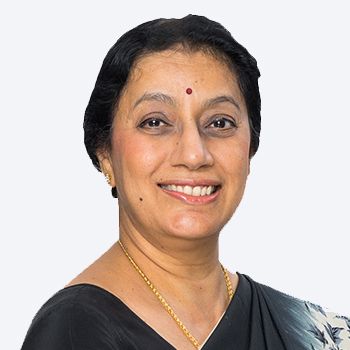
Vathsala Anantharaman

Alejandro Niño Murcia
TTS Recognition Awards
Available Awards for 2024
Outstanding Achievement Transplantation (Basic)
Outstanding Achievement in Transplantation (Clinical)
Outstanding Achievement in Transplantation (Developing Country)
Mentorship or Education and Training in Transplantation
Monday, April 8, 2024 @ 23:59 EDT
Select a year to view past recipient details

These awards recognize individuals who have made a major international impact in the field of transplantation. The awards are given out at each International Congress of The Transplantation Society.

Dr. Tullius is Professor of Surgery at Harvard Medical School, Chief of Transplant Surgery at Brigham and Women’s Hospital (BWH), and Director of the BWH Transplant Surgery Research Laboratory.
He trained at the Charité in Berlin, Germany, and received a Master of Arts from Harvard University. He has published over 300 peer-reviewed articles, has led numerous externally funded studies, and is a frequent invited speaker.
Dr. Tullius has greatly contributed to an improved understanding of the biology of organ transplantation. His more recent research interests include novel approaches to rejuvenate organs, immunosenescence, individualized immunosuppression, and the effects of metabolism on alloimmunity, as well as pioneering work in face, hand and uterus transplantation.
Dr. Tullius is an Executive Editor of Transplantation, Associate Editor of Transplant International, and has served as Associate and Consulting Editor of the American Journal of Transplantation. He has served on the Board of ESOT and was the founding Chair of the society’s Basic Science Committee. He has chaired several committees for the AST, was the founding Chair of AST’s Vascular Composite Tissue Transplant Committee and has organized several international meetings for TTS. Dr. Tullius currently serves as the Senior Treasurer of TTS, is a member of the Declaration of Istanbul Custodian group, and Vice President of the International Society of Uterus Transplantation. Dr. Tullius has received several awards including the Clinical Science Investigator Award of the AST, the Joseph E. Murray/Simon J. Simonian Mentoring Award, and the Excellence in Transplantation Award by the National Kidney Foundation.

Dr. Anthony “Jake” Demetris is the endowed Starzl Professor of Liver and Transplant Pathology, and currently Directs the Division of Hepatic and Transplantation Pathology along with the Shared Research Histology Laboratory facilities located at the University of Pittsburgh Medical Center. Dr. Demetris joined the University of Pittsburgh School of Medicine in 1986 after attending medical school and completing his residency at the University of Pittsburgh Medical Center.
Dr. Demetris’ contributions have been noteworthy in all aspects of liver allograft pathology and clinical transplantation immunobiology, including drug development, acute and chronic antibody-mediated rejection, tolerance monitoring and multiplex labeling and automated image analysis. He completed > 480 peer-reviewed publications (google h-index: 126; 8/6/2020) and >250 invited speaker engagements and serves as a board member Banff Foundation for Allograft Pathology and an Editorial Board Member of the American Journal of Transplantation.
Currently, Dr. Demetris maintains active and robust clinical, consultation, and translational research practices that focus on all aspects of transplantation pathology and native organ diseases leading to transplantation involving the heart, kidney, liver, and intestines. He directs a translational research laboratory that hosts state-of-the-art morphological and molecular infrastructure for tissue specimen evaluation, utilizing multiplex labeling, automated image analysis, spatial RNA/protein expression and machine learning algorithms. The laboratory is funded by various government, corporate, and non-profit organizations. It focuses on evaluation of heart, kidney, and liver allograft biopsy specimens from various clinical trials involving the immunobiology of rejection, tolerance induction, and evaluation of new immunosuppressive agents and extra-corporeal machine perfusion devices.

Born in 1949 in a small village in Boyerahmad, southwestern Iran, Dr. Malek-Hosseini participated in a fellowship training program in liver transplantation in Pittsburgh, USA after graduating from Tehran and Shiraz Universities of Medical Sciences.
Since the beginning of his career, more than three decades ago, Dr. Malek-Hosseini’s major concern has been to establish the necessary infrastructures for a network in the region for the procurement of organs from brain-dead donors to put an end to organ selling in Iran and open avenues for transplantation of other organs. Currently, he is running the largest solid organ transplantation center in the world in Shiraz. It is affiliated with the Avicenna Organ Transplantation Institute, the largest charity foundation in the region. More than 96% of kidney transplantations performed in the center are taken from deceased donors, which is second to none in the world from a cadaveric donation rate point of view. The center set a new world record in 2017, performing 638 liver transplantations (93% from deceased donors). The center has also been devoted to training transplant surgeons from other countries, mainly MESOT states. The collaboration with other centers was fruitful and has so far resulted in the establishment of 12 transplant centers in Iran and other countries, and publication of hundreds of articles in international peer-reviewed journals.
Over the past years, Dr. Malek-Hosseini’s endeavors have been acknowledged with several national and international awards. Recently, in January, 2020, Dr. Malek-Hosseini was awarded the honorary fellowship of the American College of Surgeons. His vision is to promote the Transplant Center in Shiraz to an internationally recognized university in the forthcoming decade.

Throughout Dr. Jerzy Kupiec-Weglinski’s career in experimental organ transplantation, first at Harvard (1979-1997) and then UCLA (1997-present), a constant theme has been his dedication to, and success in, the training and education of fellows, residents, and students.
The evidence for his abilities as a mentor/teacher is his long list of Current Trainees (11); Pre-Doctoral Trainees (20); and Research Trainees (>40), most of whom have reached high academic ranks in immunology, surgery, and even as CEO’s of bio-companies, around the world. He had also mentored many clinicians (>30) at the beginning of their careers. This eventually resulted in them achieving major academic positions in the U.S., Japan, Germany, Switzerland, and Poland. Between 2006 and 2011, Dr. Kupiec-Weglinski served as a Mentor to Rising Star Awardees of the International Liver Transplant Society (ILTS) Congresses in Los Angeles, CA; Rio de Janeiro, Brazil, New York, NY; Hong Kong, China; and Valencia, Spain. Dr. Kupiec-Weglinski’s education and mentoring efforts have resulted in a distinguished reputation for the Dumont-UCLA Transplant Center in the field of transplantation immunobiology as it has over the years been the source of multiple seminal publications. It also resulted in many prestigious scientific and educational awards for its fellows and faculty members. Four of Jerzy’s past Ph.D. mentees now hold faculty appointments at UCLA and run NIH-sponsored research programs. Dr. Kupiec-Weglinski, the inaugural Paul I. Terasaki Chair in Surgery, David Geffen School of Medicine at UCLA, was the recipient of the 2018 TTS Award for Outstanding Achievement in Transplantation (Basic Science).

These awards recognize individuals who have made a major international impact in the field of transplantation. The awards are given out at each International Congress of The Transplantation Society.

During research career in experimental organ transplantation spanning four decades, first at Harvard and then UCLA, Dr. Jerzy W. Kupiec-Weglinski published over 470 papers and book chapters in the areas of lymphocyte recirculation, immune tolerance, host sensitization and organ ischemia-reperfusion injury. His early work identified the mechanisms by which IL-2 receptor antibodies modulate the immune system, and paved the way towards the clinical development of these agents for the prophylaxis of rejection. His later work largely focused on solving one of the most vexing problems in transplantation, i.e., how to improve the quality and number of donor organs. His contributions to the field fall into two principal categories: 1/ the discovery of key biological pathways responsible for innate immune-driven stress response in the transplant and allo-immune mediated graft rejection; and 2/ the development of novel therapies that control these pathways. Dr. Kupiec-Weglinski’s research for the past 30 years has been continuously funded by NIH. Currently, he serves as Director on Program Project Grant and Principal Investigator on three RO1s. Dr. Kupiec-Weglinski was a standing member of TTT Study Section at NIH; member, Board of Directors, American Society of Transplantation; and recipient of AST/Astellas Established Investigator Award. He holds the inaugural Paul I. Terasaki Endowed Chair in Surgery, David Geffen School of Medicine at UCLA.

Jay A. Fishman, M.D. is Professor of Medicine at Harvard Medical School, Director of the Transplant Infectious Diseases and Compromised Host Program at the Massachusetts General Hospital (MGH), and Associate Director of the MGH Transplant Center. Dr. Fishman completed medical school at Johns Hopkins University School of Medicine, internal medicine training and Infectious Disease Fellowship at MGH, and Fellowships in Molecular Biology and Genetics at MGH and Harvard Medical School. Dr. Fishman is a Fellow of the American College of Physicians, the American Society of Transplantation (AST), and the Infectious Disease Society of America. Dr. Fishman established the Transplant Infectious Disease Program of MGH to provide clinical care for recipients of solid organ and stem cell transplants. This unique program has trained many of the international leaders in the field. His laboratory investigates infections in xenotransplantation and viral pathogenesis in transplantation. Dr Fishman has over 300 publications. He has a special interest in molecular diagnostics and biotechnology and medical education. He is Past-President of the American Society of Transplantation. He is a frequent contributor at international symposia where he has shared his experience promoting worldwide transplant safety. He has received career achievement awards from AST and the Transplantation Society.

Born and raised in Guatemala, – a typical “developing country” – , still as a medical student, he rebelled against the fate of ESRD patients in his country who had no prospect of survival.
Having had the unique opportunity after his surgical residency to work with the late Prof. Rudolf Pichlmayr and with Prof. Hans G. Borst in Transplantation and Peripheral Vascular Surgery in Hannover, Germany, he was determined that, upon his return to his homeland, it would be his goal to make organ donation and transplantation possible, available and accessible for his fellow countrymen.
Since 1989 he has been involved in the creation of transplant legislation, education, the creation of the first large public dialysis facility, the initiation of adult and pediatric renal transplant programs at Guatemala’s impoverished health system´s hospitals, and the first successful transplants from living and deceased donors. He has for thirty years met the typical obstacles of an underserved country and its authorities, but also found the unique opportunity to work with the most outstanding colleagues and nurses, some visionary authorities and wonderful solidary people, who have shared his dream and made it possible, to serve hundreds of suffering patients.
TTS, DICG and RCIDT have been instrumental in this endeavour, and continue being strong allies, and a platform to learn and exchange experiences with peers and masters in the field.

Prof. HL Trivedi is Pro-Chancellor of Gujarat University of Transplantation Sciences and Founding Director of Smt. G R Doshi and Smt. K M Mehta Institute of Kidney Diseases and Research Center and Dr. H L Trivedi Institute of Transplantation Sciences (IKDRC-ITS), Civil Hospital Campus, Asarwa, Ahmedabad 380016, Gujarat, India. It is the largest Institute of its kind in the world with 438 beds for care of kidney disease patients. Prof Trivedi and his team has completed more than 5200 kidney transplantations including more than 700 deceased donor kidney transplantations and 400 robotic kidney transplantations at IKDRC-ITS Ahmedabad. Prof HL Trivedi and his team has performed largest number of kidney transplants in India and at present doing more than 350 kidney transplantations including more than 100 deceased donor kidney transplantation every year. IKDRC-ITS Ahmedabad is the only public sector hospital of India doing liver transplants and completed more than 300 deceased donor liver transplantations. He has trained more than 200 Nephrologists in India.
Prof HL Trivedi is a Pioneer Nephrologist, Immunologist, Transplanter and Stem Cell Researcher of India with many patents on stem cells therapy for transplant tolerance and insulin making stem cells. Prof Trivedi is the founder of Indian Journal of Transplantation, Indian Journal of Nephrology, and Indian Society of Organ Transplantation which has played a pivotal role in development of transplantation as a science in the country. Recognizing his contribution towards development of Nephrology and Transplantation, he was awarded with HONORIS CAUSA (Doctor of Science) by Chhatrapati Shahuji University of Lucknow in 2009.
Prof HL Trivedi was awarded with Padma Shri for his distinguished service in Kidney transplantation in India for poor patients -- one of the highest civilian honours of India.


Dr. Karen Dwyer is a medical graduate from The University of Melbourne. She completed her training in nephrology at St.Vincent’s Hospital in Melbourne before completing her PhD under the supervision of Prof. Tony d’Apice. Dr. Dwyer completed post doc studies under the supervision of Prof. Terry Strom and Prof. Simon Robson in Boston. From 2006 until 2015, she was based at St. Vincent’s Hospital Melbourne, including as co-director of the Immunology Research Centre from 2011. During that time she supervised a number of PhD students, mostly nephrology trainees and mostly women. In 2015, Dr. Dwyer was appointed Prof. of Medicine and Deputy Head, School of Medicine at Deakin University, Victoria.
Dr. Dwyer was elected to the Transplantation Society of Australia and New Zealand (TSANZ) Council in 2013. She served for 6 years including as secretary from 2015. During this time Dr. Dwyer introduced a plenary lecture on gender equity into the Annual Scientific Meeting, which has since been formalised as the annual Josette Eris Memorial Lecture; secured the Josette Eris Award which is awarded every 2nd year to an outstanding female early career member of the TSANZ; proposed a constitutional change to include gender representation on council. It should be noted that even without ratification of the constitutional change (due for voting in 2019), the current TSANZ council is represented 50:50 by men and women.
Dr. Dwyer has a received a number of awards including the Basic Science Mentor/Mentee Award The Transplantation Society twice; Ian McKenzie Prize for Outstanding Contribution to Transplantation; and Key Opinion Leader, The Transplantation Society.

Dr. Yuki Nakagawa is an Associate Professor at Division of Urology Department of Regenerative and Transplant Medicine, Graduate School of Medical and Dental Sciences at Niigata University. She is also a vice chairman of the Women in Japan Urological Association and a member of the committee for women. Presently, she serves of the Editorial Board for Japan Clinical Transplantation.
She graduated from Tokyo Women’s Medical University in 1991 and completed her training at Tokyo Women’s Medical University in Transplant Surgery. In 1995 she became board certified in General Surgery and Urology. She has been a staff surgeon at Division of Kidney Transplantation and Urology in the Department of Regenerative and Transplant Medicine at Niigata University Hospital since 1996.
Dr. Nakagawa has been involved in more than 1000 kidney transplant cases and clinical research especially in the field of ABO incompatible kidney transplantation and has participated in many clinical trials. She has published many articles in local and international scientific journals and actively participates in international congresses. She won the price for the 2014 Scientific Award from the Ministry of Education in Japan because of her enthusiastic campaign for promoting deceased organ donation in Japan. Furthermore, she is an active role model for female urologists as well as kidney transplant surgeons and contributes greatly to the Japanese Transplantation Society and Urological Association.

Dr. Carmen Pantis was born in Bihor County, Romania, in 1964. She studied at the University of Medicine and Pharmacy Iuliu Hatieganu in Cluj-Napoca in 1988. She was certified as an ICU doctor in 2009, one year after she was certified as a transplant coordinator. Dr. Pantis also holds a competence in emergency medicine, which she acquired in 1997. By the year 2007, she also managed to complete a doctorate in the field of pharmacology, further elevating her level of competence and knowledge in the field of emergency care and transplant medicine.
The main center of her activity revolves around the Clinical Emergency County Hospital in Oradea, Romania, and the Faculty of Medicine and Pharmacy within the University of Oradea. Dr. Pantis has been the Regional Transplant Coordinator in Romania since August 2016. She has participated as a speaker in a variety of workshops relating to the topic of transplantation such as the one in Ohrid, Macedonia in 2012 and GLS San Diego in the same year. Additionally, she has held the position of President of the Bihor Medical College since December 2011 and is also a lecturer in the field of Surgery and ICU at the Faculty of Medicine and Pharmacy in Oradea.
Additionally, Dr. Pantis has well over 100 significant written and oral contributions to medical papers and medical conferences in a large variety of domains including pharmacology, surgery, transplant medicine and ICU care.

These awards recognize individuals who have made a major international impact in the field of transplantation. The awards are given out at each International Congress of The Transplantation Society.

David Cooper studied medicine at Guy’s Hospital Medical School of the University of London (now merged with King’s College London), where he also carried out research in heart storage for the PhD degree. He subsequently trained in general and cardiothoracic surgery in Cambridge and London before taking up an appointment in cardiac surgery at Groote Schuur Hospital in Cape Town. There, with Winston Wicomb, he developed a hypothermic perfusion device to store donor hearts, initially in large animals and subsequently in the clinical program. With Dimitri Novitzky, he investigated the detrimental effects of brain death on donor organ function in pigs and baboons before establishing thyroid hormone therapy in the management of potential organ donors in clinical transplantation. In 1987, he relocated to the Oklahoma Transplantation Institute in Oklahoma City where he continued to work in both the clinical and research fields; with colleagues, he identified the importance of the Gal antigen in xenotransplantation. After 17 years as a surgeon-scientist, he decided to concentrate his attention on research, initially in the TBRC at the MGH and subsequently at the Thomas E. Starzl Transplantation Institute at the University of Pittsburgh. For the past 25 years, his major interest has been the xenotransplantation of organs or islets in pig-to-nonhuman primate models.

After receiving his undergraduate and medical degrees from the University of North Carolina, Chapel Hill, Dr. Jordan completed a pediatric internship and residency at the University of California, Los Angeles. He completed three fellowships: one in pediatric nephrology at UCLA, one in experimental pathology in the Department of Immunology at Scripps Clinic and Research Foundation, and the third in dialysis and transplantation at Children's Hospital of Los Angeles. He is board certified in pediatrics, pediatric nephrology and diagnostic laboratory immunology.
For more than two decades, Dr. Jordan has performed extensive research into various aspects of immunology and transplantation, funded by dozens of research grants and awards, including two prestigious National Institutes of Health controlled clinical trials in kidney transplantation grants. He has written hundreds of articles and abstracts published in scientific journals, presented findings at medical and scientific organisations and authored about two dozen book chapters. Dr. Jordan's ground-breaking research in transplant immunology led to the development of a drug therapy protocol that significantly reduces the risk of a transplanted kidney being rejected.
Dr. Jordan has extensive experience with desensitization for incompatible kidney transplantation and currently has six investigator-initiated clinical trials examining novel therapies for desensitization and treatment of antibody-mediated rejection. He and his team pioneered the use of intravenous immunoglobulin to reduce the risk of rejection in difficult cases in which other medications failed. He also created a technique to detect post-transplant lymphoproliferative disorder in its earliest stages.

Dr. Visist Dhitavat has been the Director of the Thai Red Cross Organ Donation Centre since it was established in 1994.
He is responsible for the development, maintenance and expansion of the whole process of organ donation and transplantation system in Thailand. He spends time and effort in giving knowledge and education, as well as in promoting positive attitudes toward organ donation both to the public and to healthcare professionals. He has been supported widely by all sectors: private, governmental and the media. Public awareness of organ donation has been raised through many means: news, educational materials and campaigns. He has developed good collaboration among healthcare professionals by visiting hospitals throughout the country to educate and persuade them to participate in organ donation process, and to push the organ donation to be a part of their routine work. In addition, he has set-up networks of in-house transplant coordinators at each hospital. Through these efforts, the rate of organ donation has increased by more than 10% per year.
For the last decade, Dr. Dhitavat collaborated on organ donation and transplantation meetings organized by the WHO.
His aim is to achieve national self-sufficiency for organ donation and transplantation.

Jan Lerut, MD, PhD, trained in surgery at the Katholieke Universiteit Leuven (KUL), Belgium, under Prof. J. Gruwez; at the H. Heine University of Dusseldorf, Germany, under Prof. K. Kremer; and at the Université Catholique de Louvain (UCL), Belgium, under Prof. P.J. Kestens.
From the start of his surgical career, Dr. Lerut has been involved in organ transplantation. This interest resulted in a transplantation fellowship at the Universities Paris-Sud-Centre Hépatobiliaire Paul Brousse under Prof. H. Bismuth and at Pittsburgh Medical Centre under Prof. Thomas E. Starzl. He was Director of the Abdominal Transplant Program at the Inselspital University of Bern, Switzerland, from 1987 to 1991 (Prof. L.H. Blumgart).
Dr. Lerut is currently Professor of Surgery and co-Director of the Department of Abdominal and Transplantation Surgery, and Director of the Starzl Abdominal Transplant Unit at the University Hospital Saint Luc and the UCL Transplant Centre in Brussels.
Dr. Lerut has authored more than 300 peer-reviewed articles, 24 book chapters and 24 scientific films. He made more than 600 communications on national and international congresses, mostly devoted to liver transplantation. He co-edited the book Regenerative Medicine Applications in Organ Transplantation. His research interests focus on the development of technical refinements in liver transplantation, the value of liver transplantation in hepato-biliary oncology, the use of minimal immunosuppression and tolerance induction.

Professor S. Adibul Hasan Rizvi is the founder of Sindh Institute of Urology and Transplantation, Pakistan which started in 1971 and has progressed into the largest urology, nephrology and transplant centre of South Asia. It is based on the model of community government partnership. As a humanitarian, Prof. Rizvi’s mission has been to prove that everyone has the right to the best treatment that can be offered, and all of it free of cost.
Prof. Rizvi founded a high ethical standard transplant programme in Pakistan, the Sindh Institute of Urology and Transplantation (SIUT). SIUT has performed over 5000 living related kidney transplants with lifelong follow-up and immunosuppression free with dignity. He performed the first deceased kidney transplantation and initiated live related liver transplantation in the country with the help of Kings College and the Shiraz Organ Transplant Centre.
He has played a pivotal role in the campaign against transplant tourism and helped in the promulgation of transplant legislation to increase altruistic transplants and allow deceased donation. He is a Past President of the Middle East Society of Organ Transplantation; the Asian Society of Transplantation; the Nephrology, Urology, and Transplantation Society (NUTS) of the South Asian Association of Regional Cooperation (SAARC); and the Transplantation Society of Pakistan. He is a well known figure in the international scene and has been given several awards for his immense contributions in the field of medicine and transplantation, which include the Ramon Magsaysay Award, the St. Paul’s Medal, the Hunterian Professorship, the Felix T. Rapaport Award, the National Kidney Foundation Medal, and the Pioneer Award of the International Society of Nephrology (ISN).


Lori West, MD, DPhil, FRCPC, is an acknowledged leader internationally in the field of paediatric cardiac transplantation and immunology. Her pioneering clinical work in ABO incompatible infant heart transplantation has had an enormous impact in the field worldwide. This together with her laboratory investigations exploring the mechanisms of tolerance in the B cell compartment that develops in infants who receive an ABO incompatible graft has generated new insights in the field. Lori has taken leading roles at her own institution where she is Director of the Albert Transplant Institute and nationally where she pioneered the development of the Canadian National Transplant Research Programme, a multi-disciplinary research programme in transplantation across all of the provinces; Lori is currently Director of CNTRP.
Lori is an exemplary educator and mentor. She has trained, and continues to train, numerous highly qualified physicians and scientists, many of whom will be tomorrow’s academic leaders. Indeed, her trainees have won many awards from the major transplant professional societies and granting agencies.

Elmi Muller, MMed, MBChB, FCS, MRCS, FACS is the Head of the Transplant Unit at Groote Schuur Hospital in Capetown, South Africa, and directs an impressive clinical service at an institution with a rich history in transplantation. Through Elmi’s groundbreaking work in transplanting HIV positive organs from deceased donors into HIV positive recipients many South Africans are alive and off dialysis. Her work has had international impact on laws involving donation, including the introduction of the HIV Organ Policy Equity (HOPE) Act in the United States in 2014, ending the US federal ban on the procurement of organs from donors infected with HIV.
Elmi’s work with the transplant community goes well beyond her work with HIV positive donors, and includes volunteering her time with The Transplantation Society, the Women in Transplantation initiative, as an Executive Committee member of the Declaration of Istanbul Custodian Group (DICG) and her ongoing involvement in an international effort to bring renal transplant programs to the African continent.
Lalitha Raghuram’s role as a catalyst has brought together public and private hospitals, families, medical staff and public at large to take responsibility for organ donation. Her contribution in creating dedicated transplant coordinators, families, medical staff and public at large to take responsibility for organ donation. Her contribution is immeasurable, there are more than 1000 professionals have been trained so far with a direct impact of more than 5500 organs and tissues being transplanted to needy patients from deceased donors.
The transplant coordinator training is offered to all the interested and qualified individuals irrespective of their race, religion, gender, ethnicity, class, caste or creed. There are more than 500 women (more than 50%) that have been trained through this training program.
Lalitha Raghuram has been a mentor and an active board member of several hospitals has advocated for increasing women in transplantation be it doctors, nurses, or social workers. Her visionary untiring efforts along with MOHAN Foundation in India are on the path of saving many lives.


Professor Huang Jiefu graduated from Sun Yat-Sen Medical College in Guangzhou in 1969, and was conferred his MS degree in 1982. He was a post-doctoral fellow at Sydney University in Australia, with liver transplantation as his major area of study and research. From November 2001 to 2013, Professor Huang served as the Vice Minister in the Ministry of Health, in charge of international health exchange and cooperation as well as medical education and research. Professor Huang successfully performed the first Chinese liver transplantation in 1994, and the first Asian combined liver-kidney transplantation in 1997. As the Chairman of the National Organ Donation and Transplantation Committee, he has orchestrated the entire organ transplantation reform and developed a deceased organ donation program as an ethical alternative source of organs ending the use of executed prisoner’s organs. He also played a vital role in the promulgation and implementation of the organ transplantation regulation in China. As the President of China's Hospital Association and Dean of the Hospital Management Research Institute at Tsinghua University, he actively involved in the reform of China's public hospitals. He is a Standing Member of the 12th National Committee of the Chinese People's Political Consultative Conference and the Deputy Director of its Subcommittee of Education, Science, Culture, Health and Sports. Professor Huang is highly recognized as a prominent leader in China’s transplantation and healthcare reform by domestic and international medical communities, and continues to play an active role in China's medical profession.


Dr Bušić is working in the Ministry of Health, managing the Institute for Transplantation and Biomedicine, i.e. Competent Authority for Organ, Tissues and Cells.
She was appointed as the National Transplant Coordinator in 2002 to provide senior leadership and coordinated national efforts in development of self-sufficient organ donation and transplantation system in Croatia. Nowadays, Croatia is now one of the world leading countries in deceased organ donation and transplantation per million population.
In 2011 dr. Bušić was appointed as Director of the Regional Health Development Center on Organ Donation and Transplant Medicine (RHDC Croatia) designated to promote and assist development of deceased organ donation and transplant medicine in the nine South-east European countries. In partnership with international organisations (TTS, WHO, CoE, ESOT/EDTCO, EC) RHDC Croatia has provided a sustained leadership in implementing concerted actions aimed at the development of successful and self-sufficient organ donation and transplantation programmes in these countries. As a result, significant progress has been achieved in Montenegro (transplant and deceased donor program have been launched), Romania (donor rate doubled), Macedonia (living kidney transplant rate increased) and Bosnia and Herzegovina (establishment of Competent Authority). Efforts are underway in Serbia, Bulgaria, Albania Moldova and Israel (recently joined).
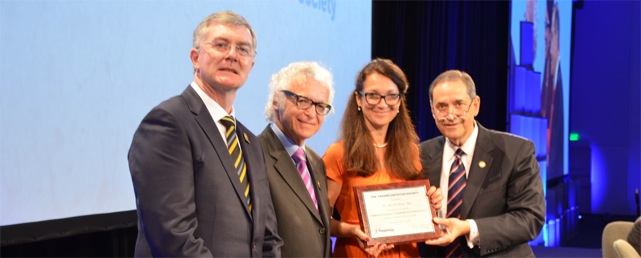
Philip J. O'Connell, Gerhard Opelz, Mirela Bušić, Francis L. Delmonico

Megan Sykes’ research career, during which she has published >400 papers and book chapters, has focused on hematopoietic cell transplantation, organ allograft tolerance induction, xenotransplantation tolerance and Type 1 diabetes. Dr. Sykes has developed novel strategies for achieving graft-versus-tumor effects without graft-versus-host disease following hematopoietic cell transplantation (HCT). She developed an approach that has been evaluated in clinical trials of non-myeloablative haploidentical HCT whose safety and efficacy allowed trials of HCT for the induction of organ allograft tolerance, allowing intentional achievement of tolerance in humans for the first time. Dr. Sykes has dissected the tolerance mechanisms and pioneered minimal conditioning approaches for using HCT to achieve allograft and xenograft tolerance. Her work on xenogeneic thymic transplantation for tolerance induction has led, for the first time, to long-term kidney xenograft survival in non-human primates. More recently, she has extended the HCT approach to the problem of reversing autoimmunity while replacing destroyed islets of Langerhans in Type 1 diabetes. She has developed novel “humanized mouse” models that allow personalized analysis of human immune disorders and therapies. Dr. Sykes is a Past-President of the International Xenotransplantation Association, served as Vice- President of TTS, has repeatedly served on TTS Council and is a member of the Institute of Medicine.
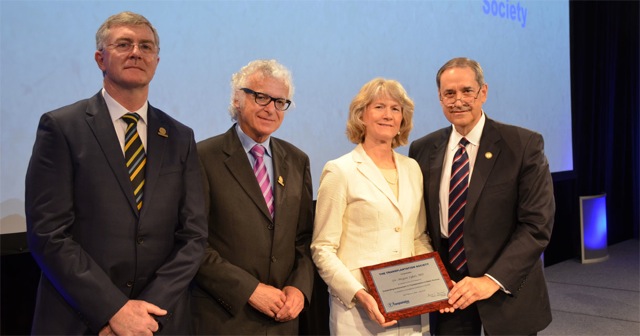
Philip J. O'Connell, Gerhard Opelz, Megan Sykes, Francis L. Delmonico

Dr. Medina Pestana is professor of nephrology and the head of the kidney and pancreas transplant program at the Hospital do Rim in São Paulo, where he developed a unique large scale transplant center, perfoming over 10.000 kidney transplants in the last 15 years. He has overseen 32 masters and 14 PhD theses and published over 250 papers. He devotes time in volunteer activities as general physician in the small city where he was born and as a mentor of Afro-Brazilian medical students.
His goals have not been easily achieved. He attended high school while working as a lathe operator to fund his education before medical school, which was funded by his work as a lab auxiliary. His transplant activity began 1983, when he organized the renal transplant program initially limited to a once a week procedure, mostly living donors. Although he is a nephrologist, he learned kidney harvesting at the Moffitt Hospital at UCSF, in 1985, under Oscar Salvatierra’s supervision, which enabled him to actively participate in organ recovery surgeries and stimulate the growing of this program in a National system. In 1987 after finishing his PhD he did a clinical fellow training at the Cleveland Clinic Foundation, followed by one year experimental organ transplant training in the Oxford University, under Prof. Peter Morris’ supervision.
In 1990 he started to increase the renal transplant program at The hospital do Rim that gradually reached over 800 transplants per year, becoming a major center for training new professionals and for research. Currently 75% of the transplants are done with deceased donor and he has personal restrictions for living unrelated kidney transplants and exchange transplant chains.
Because of the multidisciplinary nature of transplant medicine and its success within the university, he was appointed as the clinical director of the University hospital and later the director of the Hospital do Rim, allowing him to develop management and administrative abilities.
He was honored in 2004 by being elected honorary fellow of the UK Royal College of Surgeons, in 2001 by being elected one of the 100 members of the Brazilian National Academy of Medicine and in 2012 as Harvard Visiting Professor. He was twice President of the Brazilian Transplant Society.
His hobbies are sports in general, mostly watching professional soccer, baseball and American football, and practicing outdoor soccer and cycling.
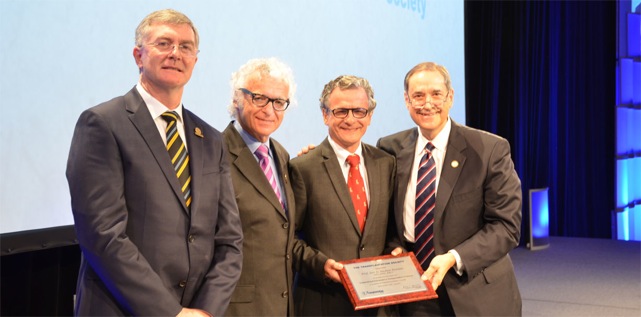
Philip J. O'Connell, Gerhard Opelz, José Medina Pestana, Francis L. Delmonico

Richard Allen developed a passion for transplantation in Oxford before returning to Sydney to establish a new kidney and pancreas transplant unit. He is currently the Professor of Transplantation Surgery at University of Sydney and surgical director of a multi-organ transplant program. He champions the broader role of transplant surgeons within the multi-disciplinary transplant team environment, whilst at the same time, challenging trainees and colleagues alike, to match and complement the skills of others within the team. His consistent message is need for excellence in surgery to maximise the potential of all donor organs. To this end, he has been instrumental in Australia in establishing training programs and credentialing guidelines for surgeons, and trained many national and international academic surgeons.
As a TTS councillor, he became more aware of the needs of transplantation in developing countries, particularly Asia with its great potential for deceased donation. He laments their dependence on living donation that can take advantage of others and obviate the need for deceased donor programs. By understanding the complex mix of local customs and competing priorities, and by providing training opportunities for a wide spectrum transplant professionals, he is demonstrating that it possible to adapt proven donation strategies to meet the needs of resource-poor countries. He is hopeful that Vietnam can provide an example for others in the region to follow.
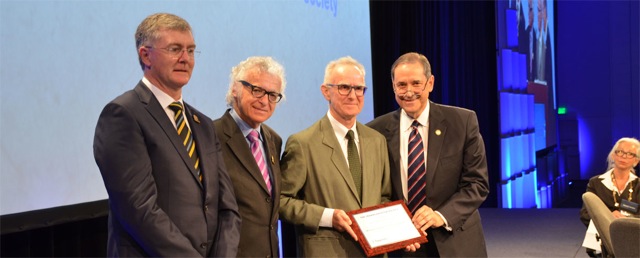
Philip J. O'Connell, Gerhard Opelz, Richard Allen, Francis L. Delmonico

Kathryn Wood is Professor of Immunology in the Nuffield Department of Surgical Sciences, University of Oxford where she runs the Transplantation Research Immunology Group (TRIG – www.nds.ox.ac.uk/trig). Her research focuses on tolerance induction at the molecular and cellular level, immune regulation and interactions between the immune system and stem cell derived tissues. She is a Fellow of The Academy of Medical Sciences and received a Royal Society Wolfson Merit Award for research excellence. Professor Wood’s research achievements have also been recognised internationally, including receiving a Gold Medal awarded by The Catalan Society of Transplantation (2011), The Rose Payne Award from the American Society of Histocompatibility and Immunogenetics (2011), the Excellence in Transplantation Science Award from The Transplantation Society (2012) and the Maharshi Sushruta Award (2012). Professor Wood's professional activities include a broad array of responsibilities both nationally and internationally. She was President of The Transplantation Society (2004-2006) and subsequently founded the Women in Transplantation initiative (WIT – www.tts.org/women) of which she is currently Co-Chair. Professor Wood is Chair of the WTC (2014) Executive Committee.

Curie Ahn, Korean physician, scientist, and educator, trained at Seoul National University Hospital and also trained at Cincinnati Medical Center. She was the first woman to become medical professor in Seoul National University Hospital. As a pioneer in transplantation and immunology, she studies genetic regulation of immune responses in xenogeneic circumstances using human immune-regulatory gene transgenic pigs. As a director of the transplantation research center, she set up an efficient organ procurement system and facilitated deceased-donor transplantation in Korean society.
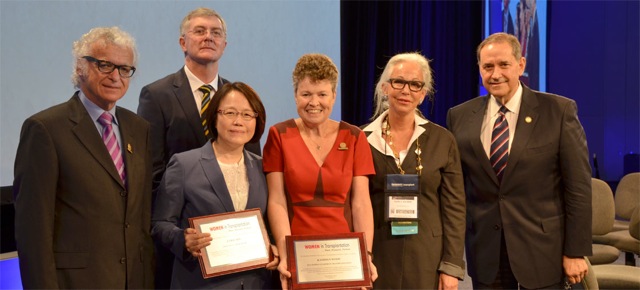
Gerhard Opelz, Philip J. O'Connell, Curie Ahn, Kathryn J. Wood, Nancy L. Ascher, Francis L. Delmonico
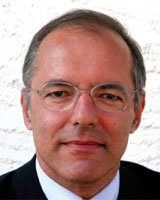
TTS • Asturias Award for international cooperation
|
|
Luc Noël received his medical degree from the University of Grenoble and specialized in clinical biology, haematology and blood transfusion in Lyon and Paris. As a consultant, he contributed to the reorganization of the French Transfusion Service, culminating in a single national blood transfusion organization, the Etablissement français du sang. In particular he contributed to setting up the system of vigilance and surveillance of adverse reactions known as haemovigilance and to optimizing the clinical use of blood components. In 1999, he was appointed by the World Health Organization (WHO) as Coordinator of Blood Transfusion Safety. In 2004, he led the Clinical Procedures (CPR) unit, responsible "for ensuring efficacy, safety and equity in the provision of clinical procedures in surgery, anaesthetics, obstetrics and orthopaedics, particularly at the district hospital level". The CPR unit is also "in charge of promoting the appropriate effective and safe use of cell, tissue and organ transplantation, including surveillance of risks, in particular in xenotransplantation trials.” A global meeting organized in Madrid in November 2003 led to Resolution WHA57.18 of the 57th World Health Assembly (WHA) in May 2004 which revived the topic of transplantation at the WHO. In the last 5 years, the WHO, with the help of Member States and civil society, including the scientific and professional community, has worked at raising awareness of access, safety and ethical issues in cell, tissue and organ transplantation. |
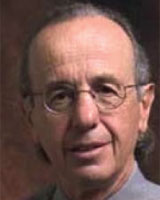
TTS • Genzyme Award for education and training in transplantationGabriel Danovitch, USA |
|
Gabriel Danovitch received his medical degree from St Bartholomew’s Hospital of the University of London. He completed his residency training in London and Bersheeba, Israel and his nephrology training at Albert Einstein College of Medicine in New York. He served on the faculty at Albert Einstein and then directed the nephrology unit at Soroka Hospital in Israel. He is a Distinguished Professor of Medicine at the David Geffen School of Medicine at UCLA and is the Medical Director of its renowned Kidney Transplant Program. He has published over 180 original articles and 50 book chapters. He has mentored a generation of transplant physicians and leads one of the longest functioning kidney transplant medicine fellowships in the US. Dr. Danovitch is an authority on clinical transplant care, transplant ethics and public policy. He has served on the board of the American Society of Transplantation and the United Network for Organ Donation and is current Chair of its International Relations Committee. He is a founding member of the Custodian Group of the Declaration of Istanbul on Organ Trafficking and Transplant Tourism. His textbook, the “Handbook of Kidney Transplantation”, in its fifth edition and translated into four languages, has become required reading for those entering the field. |
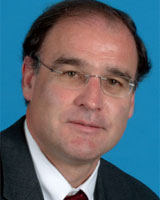
TTS • Genzyme Award for innovation in surgery and technologyPierre A. Clavien, Switzerland |
|
Pierre A. Clavien is a world-wide renowned surgeon-scientist, and citizen of the world, currently Professor and Chair of the Department of Surgery at the University Hospital Zurich in Switzerland. After a Swiss board of surgery, he moved to Toronto, Canada, to complete a PhD program in organ preservation, followed by a clinical fellowship in HPB surgery and liver transplantation. He then moved to Duke University, Durham, NC, where he initially led the liver transplantation and HPB programs, and subsequently the division of Transplantation, and obtained the rank of full Professor within four years. After nine years at Duke University, he returned to Switzerland to the position of Chair of the Department of Surgery at the University Hospital of Zurich. His areas of research include organ preservation, liver ischemia-reperfusion injury and regeneration, and pathogenesis of cancer, as well as outcome research. He received many competitive grants and awards, including one of the most prestigious prizes for scientific research, the Otto Naegeli Award and last year, the prestigious UEGW research award. |
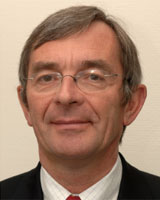
TTS • Novartis Award for outstanding contribution to The Evidence base for transplantationYves Vanrenterghem, Belgium |
|
Prof. Dr. Yves Vanrenterghem received his MD degree in 1973 from the Catholic University of Leuven, Belgium, where he is currently Professor of Medicine and chairman of the Department of Nephrology and Renal Transplantation at the University Hospital. During the last 3 decades, he has been involved in the examination of novel immunosuppressive compounds in renal transplantation in numerous randomized controlled trials. He has designed and advised on many phase III and phase IV clinical studies in drug development, as principal investigator or chair. He has authored more than 340 scientific publications and book chapters, including 80 papers on clinical trials. His clinical expertise focuses on (novel) immunosuppression, minimization protocols and complications after renal transplantation. He has been President of the Eurotransplant International Foundation for over a decade, for which he received an Honorary Award from King Albert II of Belgium. He has been a European representative on the Council of TTS and has been or is still editorial board member of several scientific journals, including Transplantation; Transplantation Proceedings; the American Journal of Transplantation; the American Journal of Kidney Diseases; Nephrology, Dialysis and Transplantation (NDT); and Transplant International. |
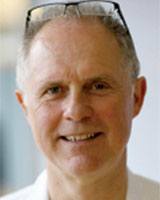
TTS • Novartis Award for outstanding investigator driven clinical trialHenrik Ekberg, Sweden |
|
Dr. Henrik Ekberg is Senior Transplant Surgeon at the University Hospital in Malmö, Sweden, since 1988, and Professor of Transplant Surgery at Lund University, since 2001. His main research interest concerns immunosuppression in renal transplantation. He has had an active role in a large number of multicenter clinical trials; for example the CAESAR and the Symphony studies. He contributed to the European Best Practice Guidelines in Renal Transplantation, published in 2000 (part 1) and 2002 (part 2). He has also participated in the work groups for the KDIGO Guidelines published in the November issue of the American Journal of Transplantation (AJT) (2009). Dr. Ekberg was Associate Editor of the AJT from 2003-2011, and is member of the editorial boards of Transplantation, Clinical Transplantation and Transplant International. He is also member of the Scientific Advisory Committee of the Roche Organ Transplantation Research Foundation. He has been Vice-president of the European Society of Organ Transplantation, and is currently Director of Medical Affairs of The Transplantation Society and the incoming TTS President-Elect. |
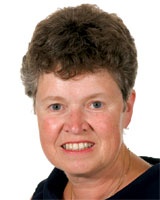
TTS • Roche Award for outstanding achievement in transplantation science (basic)Kathryn J. Wood, United Kingdom |
|
Kathryn Wood is Professor of Immunology in the Nuffield Department of Surgical Sciences, University of Oxford where she runs the Transplantation Research Immunology Group (TRIG – www.nds.ox.ac.uk/trig). Her research focuses on tolerance induction at the molecular and cellular level, immune regulation and interactions between the immune system and stem cell derived tissues. She is a Fellow of The Academy of Medical Sciences and received a Royal Society Wolfson Merit Award for research excellence. Professor Wood's professional activities include a broad array of responsibilities both nationally and internationally. She was President of The Transplantation Society (2004-2006) and is an editor of Transplantation. |
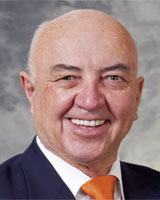
TTS • Roche Award for outstanding achievement in transplantation science (clinical)Hans Sollinger, USA |
|
Dr. Hans Sollinger earned his M.D. (1973) and Ph.D. (1975) from the University of Munich, Germany. He came to the University of Wisconsin in 1975, completing a two-year postdoctoral fellowship in the Immunobiology Research Center and his surgical residency (1976-1980). In 1980, he joined the faculty of the University of Wisconsin under the leadership of Folkert 0. Belzer, and from Dr. Belzer's retirement in 1995 through 2009, was Chairman of the Division of Organ Transplantation. He was named the Folkert 0. Belzer Professor of Surgery in 1996. Dr. Sollinger is a member of the American Surgical Association, The Transplantation Society, the American Society of Transplant Surgeons (ASTS), and the International Society for Organ Sharing (ISOS). He is an Honorary Member of the European Surgical Association. He is Past President of the ASTS and the ISOS. He was a member of the NIH Surgery, Anesthesiology and Trauma Study Section from 1994-1997. In 2001 he was appointed to a four-year term on the U.S. Advisory Committee on Organ Transplantation; he served one year as Committee Chair. In 2010 Dr. Sollinger received the AST Mentoring Award, and in 2011 he was awarded the ASTS Francis Moore Excellence in Mentorship in Transplantation Surgery Award. |
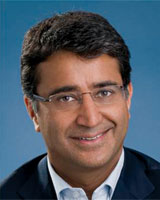
TTS • Roche Award for excellence in translational scienceShaf Keshavjee, Canada |
|
Shaf Keshavjee is a thoracic surgeon; Director of the Toronto Lung Transplant Program; Surgeon-in-Chief and James Wallace McCutcheon Chair in Surgery at University Health Network; and Professor in the Division of Thoracic Surgery and Institute of Biomaterials and Biomedical Engineering at the University of Toronto. He completed his medical training at the University of Toronto in 1985. He subsequently trained in General Surgery, Cardiac Surgery and Thoracic Surgery at the University of Toronto, followed by fellowship training at Harvard University and the University of London for airway surgery and heart-lung transplantation, respectively. He joined the faculty at the University of Toronto in 1994 and was promoted to full professor in 2002. He served as Chair of the Division of Thoracic Surgery at the University of Toronto from 2004 to 2010 and was the inaugural holder of the Pearson-Ginsberg Chair in Thoracic Surgery. He is a scientist in the McEwen Center for Regenerative Medicine at UHN. His experience in the pioneering days of lung transplantation in Toronto stimulated him to develop a career in lung transplantation. He leads a leading research team and is widely published in the field. His research interest is in lung injury related to transplantation. His current work involves the study of molecular diagnostics and gene therapy strategies to repair organs and to engineer superior organs for transplantation. |
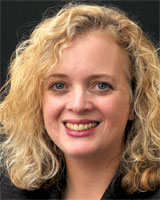
TTS • Roche Award for transplant infectious diseaseCamille Nelson Kotton, USA |
|
Camille Nelson Kotton is Clinical Director for Transplant and Immunocompromised Host Infectious Diseases in the Infectious Diseases Division at the Massachusetts General Hospital, Boston, USA. She also holds the position of Assistant Professor of Medicine at Harvard Medical School, Boston, USA. Reducing the risk of transplant-related infectious diseases and augmenting vaccination in the transplant recipients are key interests for Dr. Kotton; she has presented on these topics at many local, national and international meetings. She is the current President of the Transplant Infectious Diseases Section of The Transplantation Society (TTS), as well as a committee member for the American Society of Transplantation and the Infectious Diseases Society of America. She was the organizer and chair for the past three International Transplant Infectious Disease Conferences. Dr. Kotton serves on the Editorial Boards for both Transplantation and Liver Transplantation, and has authored and co-authored numerous journal articles, abstracts and textbook chapters. Notably, she authored the International Consensus Guidelines on the Management of Cytomegalovirus in Solid Organ Transplantation, recently published in Transplantation, and is organizing another TTS-sponsored meeting to update the CMV guidelines this fall. |
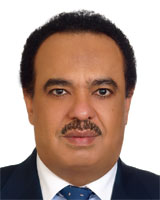
TTS • Roche Award for worldwide impact in transplantationFaissal A.M. Shaheen, Saudi Arabia |
|
Dr. Faissal AM Shaheen is the Founder/Director of the Jeddah Kidney Center since 1990—one of the largest transplantation centers in Saudi Arabia. Since 1993, he is also the Director General of the Saudi Center for Organ Transplantation, the national supervising organ procurement center in Saudi Arabia. Dr. Shaheen is an Editor for various journals, including the Saudi Journal of Kidney Diseases and Transplantation, Experimental and Clinical Transplantation, and Nephrology Dialysis Transplantation and is an author of 160 full papers and 168 abstracts. He is a member of 28 national and international societies, and has served on the Councils of The Transplantation Society (Councilor), the International Society for Organ Donation and Procurement (Councilor), the Middle East Society of Organ Transplantation (President and Councilor), the World Health Organization-Declaration of Istanbul Custodian Group (Councilor), and the Madrid Consultant Conference on Organizing Global Organ Donation (Steering Committee Member). Dr. Shaheen works to exchange expertise in the field of organ donation and transplantation within the Middle East region and serves as a representative of Saudi Arabia on the Gulf Cooperation Council organ transplantation committee to establish successful organ sharing program in these countries. His main areas of interest include updating guidelines and establishing policies and procedures for organ donation and transplantation, treatment of chronic kidney diseases, renal replacement therapy and prophylaxis. |
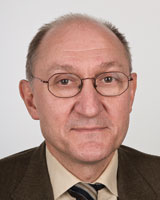
TTS | Novartis Award
|
|
Jan Lerut was trained in General Surgery at the Katholieke Universiteit Leuven (KUL) (B), the H.Heine University of Dusseldorf (G) and at the Université catholique de Louvain (UCL) (BE). From the start of his surgical career he was very involved in the field of organ transplantation and donation. This interest resulted in a hepatobilio-pancreatic and transplantation fellowship done during the years 1982 and 1983 at the University Paris-Sud - Centre Hépatobiliaire under the lead of Prof. H. Bismuth and at the University of Pittsburgh Medical Center (UPMC) under the lead of Prof. Thomas E. Starzl. He was director of the abdominal transplant program at the Inselspital University of Bern (CH) from 1987 to 1991. Currently he is Professor of Surgery, Director of the Abdominal Transplant Unit of the University Hospital Saint Luc and Director of the UCL Transplant Center in Brussels. |
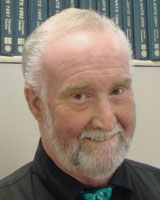
TTS | Novartis Award
|
|
J. Michael Cecka is a transplant immunologist and Professor in the Department of Pathology and Laboratory Medicine, who serves as the Director Clinical Research in the UCLA Immunogenetics Center. He received his PhD in Microbiology at UCLA and did postdoctoral studies on the chemistry, genetics and function of major histocompatibility complex antigens at the California Institute of Technology, University College in London and the University of Basel. He returned to UCLA in 1982 and joined the UCLA Tissue Typing Laboratory, which became the UCLA Immunogenetics Center, to work in human transplantation immunology. He has participated in the development of the Organ Procurement and Transplantation Network and the United Network for Organ Sharing National Registry of Transplant Recipients from 1988-2000. He managed and served as Director of the UNOS Kidney Transplant Registry from 1992-2000. He currently serves as Chair of the UNOS Histocompatibility Committee. His research is focussed on the causes of long-term deterioration and loss of kidney function in renal transplant recipients and the role of the immune system. |
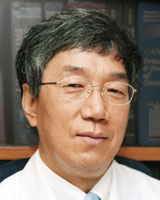
TTS | Genzyme Award
|
|
Sung-Gyu Lee is currently Professor of Surgery, Director of Organ Transplantation and of Liver Cancer Center, and Chief in Division of Hepato-Biliary Surgery and Liver Transplantation at the Asan Medical Center of Ulsan University Medical School, Seoul, Korea. He underwent the Fellowship at the Lahey Clinic & New England Deaconess Hospital in Boston, USA in 1986. He also served as Visiting Professor of Liver Transplantation at Medizinische Hochschule Hannover, Hannover, Germany in 1992. He initiated living-donor liver transplantation in Korea from 1994. He first developed the modified form of right-lobe liver graft and the Dual Grafts Transplantation in the world in 1998 and 2000, respectively. His major field includes Adult Living-Donor Liver Transplantation, Oncological Surgery for Hepatocellular Carcinoma and Perihilar Cholangiocarcinoma. |
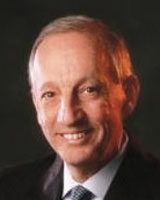
TTS | Genzyme Award
|
|
Ronald W. Busuttil is the Longmire Distinguished Professor and Executive Chairman of the David Geffen School of Medicine at UCLA Department of Surgery and Chief, Division of Liver and Pancreas Transplantation. In 1984, he established the Liver Transplant Program which has developed into one of the world’s largest centers. Clinical activities encompass the entire spectrum of liver transplantation and hepatobiliary surgery for adults and children. He and his team have performed nearly 5000 liver transplants and he is internationally recognized for his expertise in transplantation and liver surgery. Dedicated to teaching and advancing the field, his training program in transplant surgery is among the foremost in the world. He has trained over 200 surgeons from the US and abroad. Currently, his basic science research is focused on ischemia-reperfusion injury of the liver and his laboratory trains research fellows in basic science disciplines. |
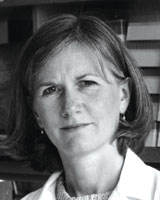
TTS | Roche Award
|
|
Megan Sykes demonstrated that donor lymphocyte infusions given to established mixed hematopoietic chimeras mediate lymphohematopoietic GVH responses that achieve GVL without GVHD, and that host APC are required to induce GVL. She showed that the absence of inflammation in epithelial GVHD target tissues is critical for GVHD avoidance and that TLR stimuli can promote GVHD in this setting. These results led to clinical trials achieving mixed chimerism across haplotype barriers without GVHD using non-myeloablative conditioning, and showed that DLI can mediate GVHR without GVHD in patients. These observations permitted trials of combined kidney and BMT in patients, intentionally achieving tolerance in humans for the first time. Her animal work demonstrated that mixed chimerism induced with T cell-depleting non-myeloablative regimens leads to central deletional tolerance and showed that costimulatory blockade can replace host T cell depletion, achieving specific, deletional peripheral tolerance. She achieved mixed xenogeneic chimerism with non-myeloablative conditioning and identified resistance and tolerance mechanisms. She showed that chimerism also leads to NK cell and B cell tolerance and elucidated mechanisms of B cell tolerance. She pioneered xenogeneic thymic transplantation to achieve T cell xenotolerance. This led to successful pig-to-primate renal xenotransplantation, in which αGal knockout porcine xenografts were accepted long-term. |
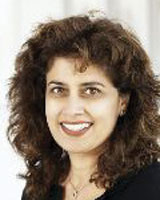
TTS | Roche Award
|
|
Minnie Sarwal is Professor of Paediatrics and Immunology and Director of the Paediatric Kidney Transplant Program at Stanford University, California, USA. She graduated from Calcutta Medical College, India and Guy’s Hospital, London, UK, before completing the Diploma in Child Health at London and a doctorate in Molecular Genetics at Cambridge University, Cambridge, UK with Nobel Laureate Sydney Brenner. Her research interests are truly translational, and are centered on the immunological basis of graft dysfunction and acceptance, using genomic and proteomic approaches, as well as immunosuppression clinical trial designs. She directs her basic science lab (http://www.sarwal.stanford.edu) at Stanford University and has pioneered numerous multicentre clinical trials in this field, including the first NIH funded randomized trial on steroid avoidance and Genentech funded rituximab trial for acute rejection in pediatric renal transplantation. |
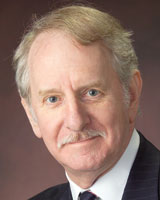
TTS | Roche Award
|
|
David K.C. Cooper studied medicine at Guy’s Hospital Medical School of the University of London (now merged with King’s College London), where he also carried out research in heart storage for the PhD degree. He subsequently trained in general and cardiothoracic surgery in Cambridge and London before taking up an appointment in cardiac surgery at Groote Schuur Hospital in Cape Town. There, with Winston Wicomb, he developed a hypothermic perfusion device to store donor hearts, initially in large animals and subsequently in the clinical program. With Dimitri Novitzky, he investigated the detrimental effects of brain death on donor organ function in pigs and baboons before establishing thyroid hormone therapy in the management of potential organ donors in clinical transplantation. In 1987, he relocated to the Oklahoma Transplantation Institute in Oklahoma City where he continued to work in both the clinical and research fields; with colleagues, he identified the importance of the Gal antigen in xenotransplantation. After 17 years as a surgeon-scientist, he decided to concentrate his attention on research, initially in the TBRC at the MGH and subsequently at the Thomas E. Starzl Transplantation Institute at the University of Pittsburgh. For the past 25 years, his major interest has been the xenotransplantation of organs or islets in pig-to-nonhuman primate models. |
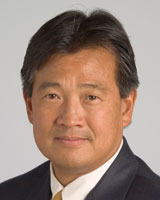
TTS | Roche Award
|
|
John J. Fung is the Chairman of the Department of General Surgery at the Cleveland Clinic and was the former Chief of the Division of Transplant Surgery at the University of Pittsburgh. He received his B.A. from the Johns Hopkins University in 1975, followed by a Ph.D. in Immunology in 1980 and M.D. in 1982 from the University of Chicago. He completed his surgical residency at the University of Rochester, and a transplant surgery fellowship at the University of Pittsburgh, under the guidance of Dr. Thomas Starzl. In 1989, he joined the faculty at the University of Pittsburgh, and rose to hold the tenured position as the inaugural Thomas E. Starzl Professor in Surgery. He joined the Cleveland Clinic in 2004 and is currently Professor of Surgery at the Lerner College of Medicine at Case Western University. He is the Medical Director for Allogen Laboratory and Director of the Transplant Center at the Cleveland Clinic. |
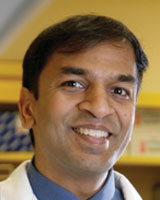
TTS | Roche Award
|
|
Atul Humar is Director, Transplant Infectious Diseases and Associate Professor, Department of Medicine at the University of Alberta in Edmonton, AB, Canada. His primary area of research interest is in translational studies of herpesvirus infections in transplant recipients. This includes molecular diagnostics for CMV, as well as host and viral factors that affect CMV disease development and response to therapy. His other research interests include the effect of other herpesvirus infections on CMV and how novel viral infections may impact transplant patients. He is involved in projects that bring the transplant infectious diseases community together. These include organizing conferences, or multi-center collaborative efforts involving either research or education. |
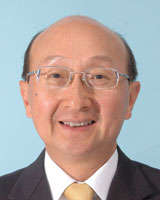
TTS • Genzyme Award
|
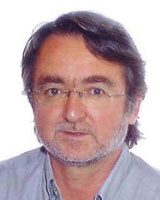
TTS • Genzyme Award
|
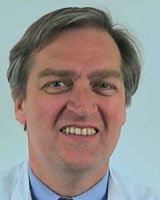
TTS • Novartis Award for Outstanding Investigator Driven Clinical TrialRutger Ploeg, The Netherlands |
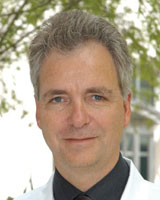
TTS • Novartis Award
|
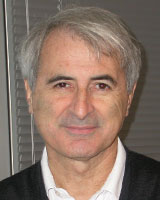
TTS • Roche Award
|
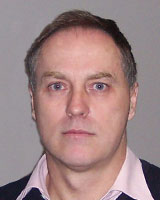
TTS • Roche Award
|
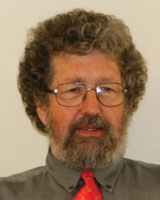
TTS • Roche Award
|
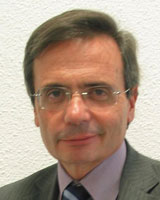
TTS • Roche Award
|
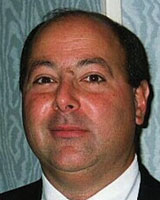
TTS • Roche Award
|
TTS Recognition Awards are presented at the International Congress of The Transplantation Society to a recipient who has made outstanding contributions in transplantation.
|
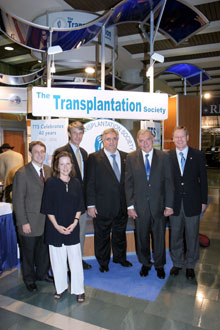 |
Contact
Address
The Transplantation Society
International Headquarters
740 Notre-Dame Ouest
Suite 1245
Montréal, QC, H3C 3X6
Canada
Используйте Вавада казино для игры с бонусом — активируйте промокод и начните выигрывать уже сегодня!
